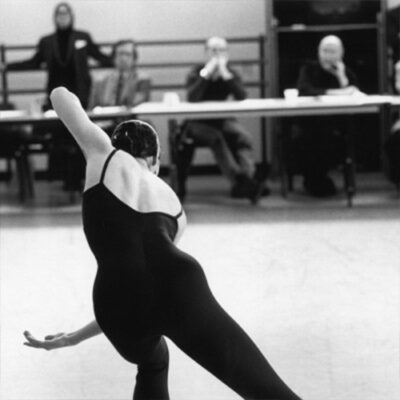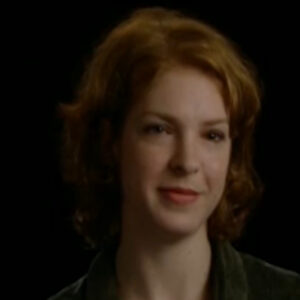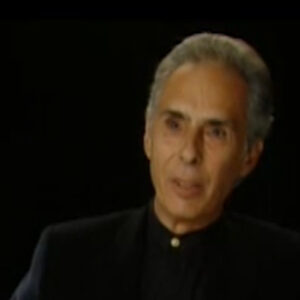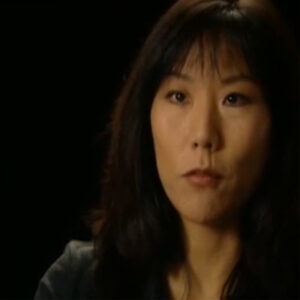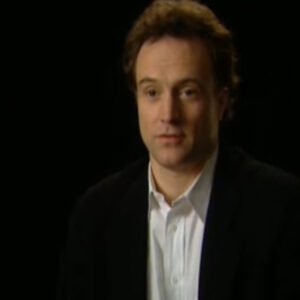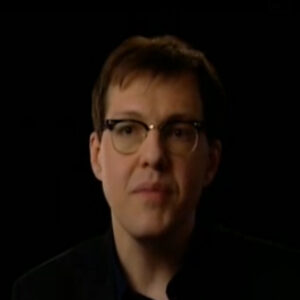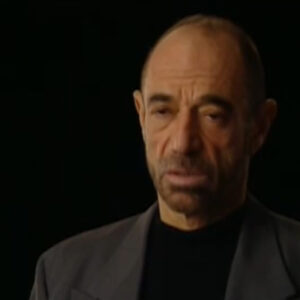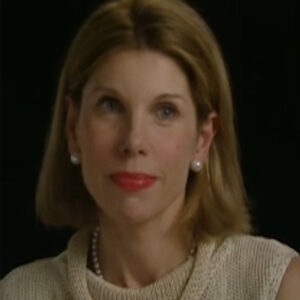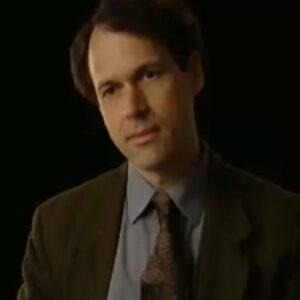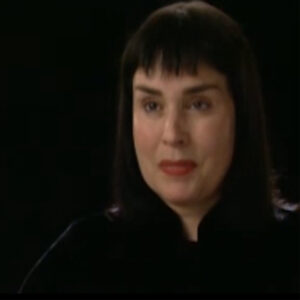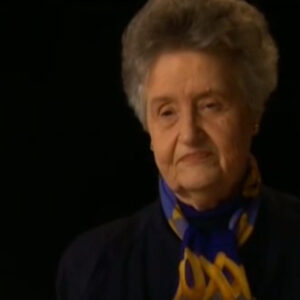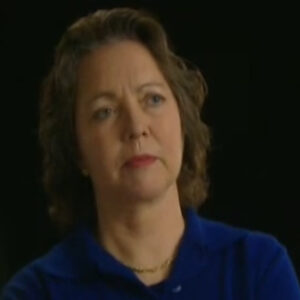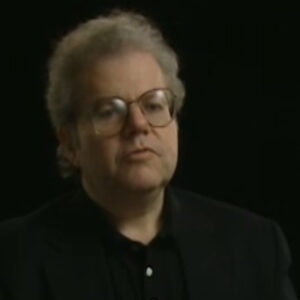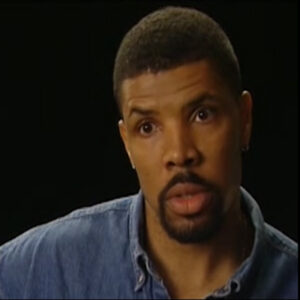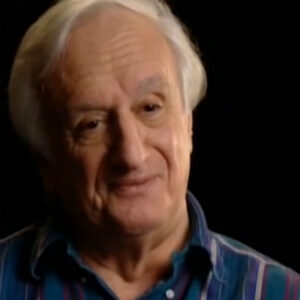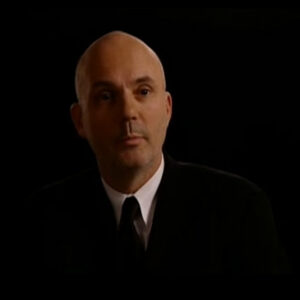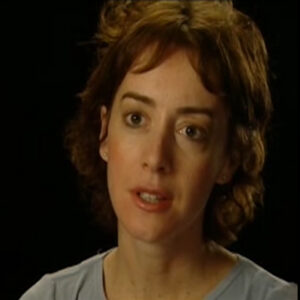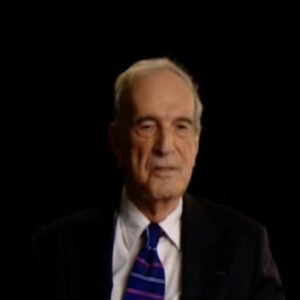Speaker I was very fortunate. Or to some people’s minds, unfortunate that my entire family was musical and indeed my mom. When did you hear it? As did her brother. My mother studied cello with Felix Salmond and her brother, Victor. Eiler studied piano with Levene’s. So there was a long tradition of going to the school to start with. My father, on the other hand. Gone to Curtis, which was the not even loyal opposition. They were the enemies. There were lots of sort of Juilliard Curtis jokes going back and forth back then. And ultimately, when it came time for me to decide on where I would settle in my own musical thinking, Juilliard offered the best conducting program. At this point. My father had been dead for a year and a half and I had to decide what I wanted to do. And I want to continue as a canister composition. Conducting seemed to be the way I wanted to go. And after extensive looks at different academic institutions, Juilliard seemed to provide what I needed at that time in the 60s. I believe most of the people in the music school went for a specific teacher. If they could get that teacher. The violinist went to study with Colombian, the pianist could go to study with all kinds of piano teachers who were there, but the conductors all went to study was your MOHLE. And this had nothing to do with the fact that my family in part had been at Juilliard.
Speaker And what was the what was the mystique? What was the myth of Juilliard? At that time? I mean, was it. What was its reputation or with its reputation? Only people that were there or what? What was making it the hallowed halls in the 60s.
Speaker Life was changing a little bit in the academic front for musicians. I had been for about four months at Indiana University, which was now emerging as the chief competitor to Juilliard. All of a sudden, it was attracting incredible levels of students, both as soloists and as teachers. So all of a sudden, Juilliard was not exactly the only place to go. As it had seemed for all those years in the 50s and early 60s. So it was a little bit different for me. What made it hallowed was all the people who would come from there. And perhaps the idea that the only decent training I might get as a conductor would come from Juilliard.
Speaker Indiana didn’t provide that, what with a little bit about do you know a lot about the you know, the early the early years, the early philosophies. Are you are you knowledgeable way back of the Damrosch or do you even think about.
Speaker I’ll answer it a different way. Because of the atmosphere in which I grew up, which was highly disciplined. I mean, what I had at home was more than anybody could get at any learning institution. The level of discipline of severity, rigidness, I mean, really, it was that old school of you do not go out and play ball until you finished your practicing and you had to get certain amount accomplished each day. No school could be as tough on its students as my household was on myself and my brother. In fact, to some degree it felt like going to Juilliard would be a liberating experience, that it would open myself up to have colleagues which I didn’t have as a child. I thought at the same time I would visit another part of the country. I hadn’t only spent my life in Los Angeles in the four months at Indiana University. So it was a whole new world that was opening up. That was certainly one of the big attractions. And I would have to say that for many people come to you are getting away from home was terribly important back then. We didn’t have the prodigies. There was a pre-school division, as it were, the kind of prep department where the youngsters went. But there wasn’t any of the competitive level for kids who were 12, 14, 15. Everybody who came to Juilliard at that point to study and go for their degrees with you had two were already of college age. So you were competitive only within that circle.
Speaker You weren’t dealing with very, very young kids emotionally when you’re growing up.
Speaker So you just feel like, I mean, your music just being in New York was a big difference from being in Los Angeles, especially for a conductor if you came here to study.
Speaker You had the chance on almost any night to hear a great orchestra playing the New York Philharmonic, Boston, Chicago, Philadelphia, Cleveland, everyone that was coming in, all the great soloists came here, part of the attraction of coming to Juilliard was coming to New York to have all of the influences, the musical world out there with a chance to hear them all. And we took advantage of it. Every one of us as a student went to as many concerts as we possibly could. We got to know the ushers in the halls. They would sneak us in if there were empty seats. We scurried down an intermission and got them. If there weren’t, we stood in the back. But that was part of the mystique. Again, it was being in New York and having the exposure to everything that New York could offer for the young musician.
Speaker And what was the whole plan atmosphere?
Speaker I mean, there was friends and, you know, I mean, you were saying you barely, barely had Colly when you were growing up on your own.
Speaker What was it like playing with other people to have that kind of.
Speaker Most of the people who I got to know over the four years in terms of my own colleagues turned out to be almost lifelong friends. We’ve stayed in touch and we see each other on the circuit. There were an extraordinary number of musicians who came out who eventually went on to have very good careers from those years. It’s a Perlman, of course, was there. Pinky Zuckerman was there are many acts. Was our Jeff Siegel is there was a college time was there down the line.
Speaker Everybody who came from the 60s at Juilliard seemed to do all right. Plus which I run into a lot of them in the different orchestras I conduct. So back then, because it was a small school, it really wasn’t very big. I have actually no idea how many students there were, but there were only three departments, really. You had the musicians, you had the singers and you had the dance department. But the dance department seemed small. It was a little bit separated from the other two. And even the vocal division didn’t seem to have too much to do with the instrumentalists. Like most schools, though, you tended to go to clicks and the conductors hung out with each of the other conductors. Violinists hung out together, pianists hung out together so far and so on. Every so often you’d all meet up and you formed your own coterie of friends. Then you stayed together as friends. But for the most part, it was a chance to really develop friendships that you knew would be long lasting. And because you were not under the supervision of your parents, they became kind of guidance counselors. You helped each other. Most of us did not come from New York and we got to know each other around the city and through all the things we needed to do as young people.
Speaker And what was your what was your dream like, Giuliani and what was this I mean, was it just the unbelievable he’s still now it’s like nine, nine, nine, ten, whatever.
Speaker It’s so, so incredibly. It’s going to be tough. Was it really?
Speaker But maybe not for you.
Speaker I know it sounds like, you know, I’d love to be able to say that the discipline and education I got to Juilliard was unsurpassed, but I have to say that essentially I made the school adjust to what I wanted.
Speaker I was a terrible student, not in the music, and that was fine. I had the discipline for that. But because we were supposed to be getting our degrees, some academic classes were required as well. A lot of them cheated. There was a class called Song Text and Opera Libretto. And we could go to that and get English credit for it. Some people elected to take classes outside of Juilliard at Columbia University, which was down the street from me. I concentrated purely on my music studies and particularly on the conducting. Different days brought different schedules. And on a Monday, we would meet at 9:00 with Joe Mohle conducting teacher in his studio, and we’d worked there for three hours. Then in the afternoon, there would be academic classes. There would be two orchestra rehearsals that we would observe the rest of the week. And on Thursday mornings, we had our shot at conducting an orchestra with Mr. Morelle in the background, usually not being very kind to anybody and intolerant of any mistakes and not willing to compliment anything that was good. This was old school type teaching. I was used to it from home. It was not a problem.
Speaker And you talk talk a little bit about.
Speaker Zamora was brought here by William Schuman to the school, who saw an extraordinary talent and saw somebody who could do what? Pretty much nobody else could do, and that was teach conducting.
Speaker It’s one thing to be able to pick up an instrument and demonstrate to your students what an instrument can do and to say how things should go. But it’s another one to be able to actually teach conducting. There are very few who can do it. But Morrell was one of them. Lessons with him concentrated primarily on what is called ear training. That doesn’t mean you get to stand to make it live. Do tricks.
Speaker But you you think about.
Speaker How things sound, how the notes are in relation to each other, and eventually how it translates to how you beat some morale is primarily concerned with the technical function of conducting. He’d never let us go out of bounds in the musical end. So if you have a crazy idea, he would usually put a damper on it.
Speaker The Denver, you know, if you win, even when you’re saying teaching is hideous.
Speaker It’s like literally it’s like a murder taking place, correct?
Speaker Go in the way. OK. But I mean, when you say he knew how to teach conducting. Yeah, you sort of explained to me, what is that? Knowing how to do it? I mean, it is when you don’t know anything about connecting and you look at someone. It does seem like you don’t you don’t know about music. You don’t know what they’re doing. Right.
Speaker But. Actually, we had the luxury of actually having an orchestra to work with, most young conductors don’t. But a Monday in school, for instance, with Mirelle was spent in front of two pianos with the conductors dividing up the music of the score and one person conducting. We would then take what we learned on the Monday into the orchestra situation on the Thursday. I think it was morale would guide us through all this. We knew over the course of a year what pieces we would be learning and we would focus on them in addition to observing every rehearsal that he did or his colleagues did. We got very involved in all activities relating to orchestras, whether they were for the opera, for symphony concerts or for ballet. And that’s what amounted to kind of just immersion into the world of how conducting is taught. You watched, as we’re all used to tell us, don’t imitate what I do. Watch me. And when I make mistakes. Keep that in mind and try to avoid making the mistakes. That was part of the teaching method. Another part of it was to always remind us of what our mistakes were. And he was merciless. He sent some of the students crying off the podium. He really would. And the more talented you were, the less likely he was to even issue a compliment in my fourth year, my last year. I did an afternoon performance of American in Paris and I thought it went well. Very rarely do I think very highly of anything I do.
Speaker You’re becoming more in tune, right?
Speaker I done a Friday afternoon performance of American in Paris. And I thought it went well. And for me to say that to myself was already a big deal, since I’m the most critical person of my own work. I ran into three or four or Morelle was sitting behind his desk chomping on that cigar.
Speaker We never really saw the light at much, just were chewed on it because I knew we would have to say something good finally after four years.
Speaker And I knocked. You mean came in? He didn’t look up from his desk. I don’t know what he was doing. And finally slicking. Well, it was not bad.
Speaker That was the highest compliment I got in the whole four years, but it meant everything to me because somehow I’d broken through a little bit. All of a sudden he didn’t criticize. It wasn’t bad. To this day, I think every time I come off the stage inside me, if I believe it may have gone well, I’ll always say it wasn’t bad.
Speaker Did he, um. Did you have a personal relationship with you, did you. Did you. We were able to develop relationships with you?
Speaker Or was he really the whole school? I mean, in a way, for you, he was the relation.
Speaker Morale was the closest person I hurt. Her morale was the closest. Mirelle was the person at school I was closest to in terms of the faculty, certainly, that he was very kind to his students.
Speaker Each week on Fridays, after the orchestra rehearsal, he would take us all to a restaurant. I think Outhred and 25th was called Franck’s. And we would just all go down there and he would always entertain us, regale us with stories from the past. You have to remember, this is the man who played the percussion parts in the premiere performance of this trial. You saw that under Stravinsky was renowned percussionist in France before you embarked on the conducting career and. Like any great teacher, you accepted everything he had to say while he was teaching, much of it would be discarded later. We all do that. But he was one of those few that you knew. You had to listen to everything he said. Whether was on a personal level or on a professional one. You listened to him for career guidance when he offered opinions that way. He knew enough to keep his own personal life apart from what he was guiding you into. He was a true teacher in every sense of the word.
Speaker Did he discourage did you ever points where you thought. Well, I’m not going to have a career in this or what he. I mean, was there a sense where if it wasn’t for you, we didn’t think you were going to make it, you weren’t going to be indulged, really? Or you feel it once you’ve got there.
Speaker I never knew where I wanted to be at the end of all of it. I’m still not sure. And certainly in school, I knew the conducting of all the things in music that I had done was what I was best suited to. And I knew I would end up as a conductor in some form or other. I didn’t know what an. I think morale, when I had to tell him that I was going to accept the position as assistant conductor in St. Louis, I think he felt I could have used another year at school with him. But I don’t know if we had not bonded to the degree that was more like a parent not quite wanting to let go of their child, but the child wanting to leave.
Speaker So you left Juilliard, obviously, before before graduating simply because I graduated. Oh, you did? Yes.
Speaker So so you think you want me to go on for a master’s program? He wanted you to go into the Masters right now. Of course, if you go back in, if you have any time. People stay on for years and years.
Speaker Yeah. Unfortunately, there is professional student syndrome. And part of it is in some cases, the talent isn’t there. In other cases, the jobs aren’t there. It’s very complex. It’s of a world in which there are probably too many talents for the positions that exist.
Speaker And yet it’s also hard in this day and age for a school to turn down a student who’s prepared to come and economically carry their own weight. When I was a student, I was on the Irving Berlin Scholarship, but there were not so many students paying their own where there were a lot of scholarships back then. There are fewer now, probably in relationship to the number of students and more students are paying their own ways. And that’s hard for school to turn down very hard. But back then, it was a small school. So it was not quite so complicated.
Speaker Did the. Talk a little bit, if you can, to the sort of the narrowing musical field. I mean.
Speaker What what are the chances for these kids we were talking to, not just a minor Sonnenberg, for instance, who is saying, you know, to go out there now and get the career that I’ve gotten, I maybe have been on the last leg knowing able to get that, you know, she said, I’m not sure if I could tell someone go to Juilliard now or or go for a violin solo career. It’s too hard. And yet I know the DeLay studio is packed.
Speaker As a youngster, I wouldn’t say I was discouraged by my family from going through music. But certainly we were always reminded of how difficult that would be. I think every generation is like that. If you’re going to be in music, you better be serious about it. And to the young person today, to some degree, there are more options and to some degree there are fewer. More options means that we are more open to different types of music and different forms of musical expression. So a young composer coming out of Juilliard is not limited anymore to thinking just about either teaching or career writing for symphony or chamber ensemble. They could be thinking about commercial work and film. They could be thinking about Broadway work. This was not the case when I was a student. An instrumentalist probably faces more pressure to become a professional sooner. Certainly a lot of the students at Juilliard make fairly decent money outside. They’re doing commercial freelance work. I know that’s a case that was not the same when I was a student. There was nobody out there really working. There were a few star youngsters who were doing well, but we’re just at the beginnings of their careers. But you were not seeing 14 year olds exploited to the degree they are now? Not that Juilliard does that, but in many cases, young people have bigger careers now than they did when I was a student. More of them seem to have that. So advice to the young person wanting to go into music now.
Speaker Try to think a little sooner about your strengths and weaknesses. Work on your strengths. Build them, see which weaknesses you can shore up those that you cannot toss them aside. Play to your strengths. If you think and believe in your heart that you will have a career in music and you keep trying at it. Be sensible about your goals and expectations. Ultimately, in music, you’re only happy if you wind up doing what you want to do. So try to figure out early on what you’re willing to have as your career. If you say to yourself, OK, I’m going to be. The next Horowitz, the next Hafitz, the next Leontyne Price. It’s nice to believe that, but then try to put a dose of reality in it. Check in with your teachers about it. Try to keep an even keel as to what you can really accomplish. To some people, there are no boundaries. I think for myself, for instance, I didn’t think I would get as far as I got. I didn’t really think about it. But as it happened, things worked out very well. I had not planned it that way. Other people, though, have aspirations and they never attain them and they have miserable lives. It’s mostly about. Making good life for yourself should be happy in what you do. Making music and whatever form you do is a way of giving pleasure and joy to so many. And you need to keep that in mind. You remember always when you go to Juilliard or any school. Why are you going there? What’s your end result? Do you want to remember what it was like to be inspired by music and keep that for the rest of your life? And if you don’t, then you shouldn’t be there.
Speaker Well, do you remember now? Why Why were you inspired by music, why did you have this? Drive. That’s your whole that’s your whole lot.
Speaker Oh, this music really does drive your life when you’re in this. It’s. Constantly said that musicians sacrifice a great deal of their personal life for their music, and that’s true. You sacrifice part of your childhood. You sacrifice part of your adolescence. You sacrifice family life. When you’re older, because the music does come first. However, Calamari Giuliani once told me that he had had a surgery where it was not sure if he was going to survive. And when he did, he vowed at that point, as he set it, to make music a part of his life and to change what had been the other way around to make life a part of music. And that’s something you don’t really hear about in school when you’re in school and you’re a Juilliard especially. Your life is centered totally around the music. There isn’t much of anything else.
Speaker We didn’t think about the politics of the time, even though I would walk out of my apartment on her 15th and run smack into the takeover of Columbia University, not having a clue as to what was going on. Whatever the politics were at the time was of no interest to the music students. We had our own isolated world. That was it. Claremont Avenue and where you lived. Whatever happened in between walking to and from getting a bite to eat, maybe going to a movie once in a while. That was about it. And these days, I think young people have to be more aware of society. It’s much harder to avoid. When we were kids, it didn’t need to be that way. There was a different kind of society. The world was different. Now it’s way too complicated, maybe too complicated for young people to understand. But they’re made to understand more of it earlier and earlier. And I guess part of it now has to reflect itself in the choice of schools. You’re going to Juilliard. Now, you really do have to think about what else it entails coming to New York. When I was there, you didn’t think about what might happen to you on the street. You didn’t think about the way you choose to live. You didn’t think about your lifestyle. All these questions that young people have to ask themselves now. We didn’t back in the 60s.
Speaker And for you, I mean, I think. We certainly got up for you. Well. What does music means so much?
Speaker When you get to your mid 50s, you start to think about why you eventually chose the paths that you chose.
Speaker And part of me says that there wasn’t a lot of choice, but of course there was. And another part says that.
Speaker Of all the things that were available to me, music was the one that I thought. I had the most to say it was either that or broadcasting baseball games. One of the two.
Speaker And.
Speaker It turns out that day after day. Whether I’m conducting or studying or just enjoying listening to music on the radio. I cannot imagine. Doing anything else. Maybe it’s because.
Speaker Of all the languages in the world, music is the one that is most readily understood by so many.
Speaker Baseball hall actually want to doing it. You did? Where were we were. I was.
Speaker Oh, yeah, absolutely. I got to fulfill fantasies. I got to Carl Carl Cardinal games and I come to do all I’ve gotten my most of my fantasies got fulfilled in some way. It was very nice.
Speaker Everything you everything you ever thought about doing.
Speaker Most everything not. I know there’s still some things left.
Speaker You were saying earlier, just until the warden goes away, you saying sometimes you look back and you think you didn’t have a choice. Did you mean you didn’t have a choice to get in your internal drive for music or didn’t have a choice because your parents did not let you do it?
Speaker No. The choice was that I didn’t do anything else. I was a horrible student and public school.
Speaker I was a horrible student when I came to Juilliard. I had surprisingly no discipline. I didn’t go to classes that much from the first time I was there. I saw, well, this is something I can use and here’s something I can’t use. And I figure, what are they gonna do to me? I got thrown out of Indiana University. Maybe they’ll throw me out of Juilliard. I don’t know. We’ll see what happens. But I tried to make the school work for me. Now, it’s not so easy to do. And I’m not a pushy person. But in this case, I knew I wanted to conduct and I tried to do everything I could to get as many opportunities to conduct as possible. I would organize ensembles on my own. We would do concerts both at Juilliard. We do things around town. I became a director of a youth orchestra here. I would work for the ballet. I would accompany the dance and the piano. I would to earn some money, play piano for violinist and clarinetist for their juries. I would conduct exercise classes for the singers and breathing. I would do anything I can to immerse myself in the musical world. The academic side I avoided. I just didn’t go to class. I didn’t even go to theory. Back then, it was called literature in materials of music. Not that I knew all that. Of course not. But it didn’t get me to where I wanted to go. And that was ultimately to perform. To be able to conduct sitting in a classroom for me wasn’t the way to do it. I would walk out of classes in some cases, and most time I just wouldn’t go. And when I was asked about it, what was my excuse? Well, I’m working with the ballet right now. Oh, no, I’m coaching at the opera. I’m playing accompanying four singers and four violinists. And that’s what I was doing. I was really doing everything I could in the performance and not just to avoid going to the other classes, but because that is what I wanted to do.
Speaker But do you think it was it was this sort of naivete or.
Speaker I don’t know, it seems very cocky to get to school and think, oh, just go design. I mean, you were awfully young to be around these sort of you know, I’ve been thinking, well, I know better. That’s kind of it.
Speaker I didn’t take an attitude that I knew better at all. I realized I didn’t know a lot of things, but I knew what I wanted to do. And I tried. And for the most part, got away with a lot of these things. Sometimes I didn’t. I got called him tour. I forget what he was. There was a man who called me into the office and said, Slatkin, look at this stinko record. And he just looked at the academic grades and, you know, conducting. I figured if we gave A’s or passes or whatever they were. But the point was that the things that I really loved. I did really well in and the things I didn’t wanted to. I did poorly and I couldn’t fake my way through things. So that wasn’t an option. I just found myself in the position of building my own curriculum, as it were. And when it came down to the very end, final year, there’s something they had. There was the Alan M final. It was big spectra for the conductors and composers. We had special El Anam, which was really harder than anybody else’s, supposedly. And this idea that on your final exam, you’d be put in a room with a score, you’d have to analyze it and you have to present your analysis before a committee. And it would be words on the blackboard. You’d have to define each one no matter what language it was. There would be scores laid out on the piano. You’d have to look at it and be able to tell what piece it was, just from one page or even a bar sometimes. Of course, I was frightened to death of it because I hadn’t been to the classes. I didn’t know, but I went in. Fully expecting that I’d be asked to repeat a year. And rather than that happened, the committee said, we’re running a little behind schedule. We only have one question for you. Why weren’t you in class more this year? And I would explain. Well, I was busy doing the contemporary music ensemble. I was doing the ballet. I was doing this. And I think part of it was the fault of the faculty, because when composers in particular saw the opportunity for someone who might actually be able to aid them after they got out of Juilliard, what were they going to do? They were gonna look at somebody like myself who might have a chance to promote those composers saying, well, we can’t send him back because, my gosh, he may never play our music. That was what I came away with. You have to remember, most the people who were teaching, at least in certain ends, are also active as performers and certainly as composers. And they need us later on to promote what they are doing as well. So there was a line there. I didn’t realize it at the time. I didn’t think about it. But later on I came to think maybe that’s how I actually got away with all of it. They saw something in me that said I might be able to promote what they did after I left. Now, I realize that sounds very cocky and self-serving, but I truly didn’t think that way at the time. But now I do.
Speaker And what was it like when you when you first sort of got out in the world? Was it was it just as you had imagined, you sort of leave this this kind of.
Speaker You know, you’ve been in a controlled life.
Speaker However you can until the death to Juilliard, was it was it difficult to make your dream happen or was it quite enjoyable? I think it was fun.
Speaker For me, it wasn’t so hard because I’ve been around professional musicians all my life. It wasn’t just that my parents were in Hollywood. They were around all the other musicians there in the studios with the symphony orchestras, the chamber ensembles they played with. So I always knew what the professional life was like. In fact, in a way, going to joy. It was the respite away from professional life. That was the one time I didn’t see that unless I went to hear other orchestras on a regular basis. But I was never around those musicians all the time. We were around our colleagues.
Speaker So by the time I got back to St. Louis after Juilliard was over. It felt more like the time I’d known from being a youngster to some degree, even though what I learned at Juilliard was invaluable and I really what I took away from it. Was incredible. And there was probably no other place at the time I could have experienced what I experienced between New York and Europe itself. But when I got back to seeing those, what I tried to do was applied the things I learned here at the school. That made sense in the professional idiom. But a lot of it didn’t. Back then, Julia didn’t prepare you for what life would be like in the professional world. We were thrown into it and a lot of people didn’t make it after they left school because they couldn’t handle it. We were never taught about what the real world was like. We still lived in idealistic Claremont Avenue.
Speaker And what when you say that it was you had these incredible things that if you think back to these incredible things that you’ve brought forward with your career, what what stands out for you? What do you sort of feel when you think that’s it? A that’s a Juilliard moment.
Speaker That’s. I think a lot about the colleagues at school just being around nothing but musicians who were like me, people who were talented and gifted, most of whom would go on to have successful careers and to spend day after day with them to develop friendships with them, to work with them. Back then, as colleagues, knowing that perhaps we would run into each other again someday because of where we would all wind up. That’s something that very few people can say. Only people that are in a small institution devoted to one specialized subject would probably do that. I also think because it was small, that the relationship between the students and the teachers was particularly unique because there was still a degree of distance, but you felt they had their arm around you the whole time you felt you were being protected, be it Morrell or Peter Menin or any of the others who were at the school who felt comfortable in the environment of Juilliard.
Speaker You got into that building. You went through those doors. There was Annie at the coat check desk. I was there to greet you in the morning. I was making you feel good and feel welcome. And no matter how tough it could be, and classes could be tough somehow. Juilliard felt more like your home than the actual place you went to go to sleep.
Speaker That’s very that’s a kind of a very warm. I mean, something like. It’s a very family.
Speaker It was is the coat check. And they still have actually a girl who’s up in the office who takes pictures of everyone that’s ever on there. It’s great. I mean, there’s a lot of. Of people have the right kind of warm memories, especially more memories about their colleagues. You actually said to Amy on the phone that you felt there was a generation of talent when you were there. That’s been hard to duplicate. I wonder if you’ll talk about that and what you know, why you think it’s been hard to. What was. What was bringing. Together way. Well, let me reiterate what that way.
Speaker That was because so many people who came through the doors at Juilliard in the 60s went on to have very successful careers and not just violinists who were pianists. They were clarinet as there were singers there, just tons of people. And maybe it was the small school feeling it was larger than Curtis, but it still was a small school and everybody was focused on why they were there, but not as career oriented. They were just focused on learning about music. And along the way, we learned how to get along with each other. We learned how to have relationships with our teachers. We grew up together. Most people in the musical world don’t grow up until a little bit later as human beings. We don’t go through the teenage angst that so many others do. And Juilliard was our place to do that. So we wait until we’re at the end of our teens into early 20s. And you did this with your colleagues at school and it was small enough you could do that. And I think that’s why so many succeeded. I remember a group of us. About six or seven in my final year anyway. All agreeing that if any of us ever exhibited signs of large egos or ostentatious. Something like that. That it was the duty of the other six. To either slap us or knock us around. To get out of our system. To remind us of what we were like as kids in school. That if we stayed a little bit childlike and a little bit innocent, that we would do OK. And, you know, none of us have gotten hit yet. But we do remind ourselves some of the stay in touch. Very. Consistently and we try to keep part of the quality that I think made us interesting as students.
Speaker And why go on now?
Speaker Well, I don’t know that it’s gone, but I know that walking God in this roster of the great, huge career, you know, walking about, you know. I mean, about yourself, your time. I mean, these are you were you referring to them? I think it’s the major career.
Speaker Well, you certainly have people coming out of school with major careers, but maybe not in the numbers. I mean, you tend to see one or two year maybe who cannot do really well. But back then, it was, you know, seven, eight, nine people emerging out of one class. When I look at the conducting class and it was a small group for students, that was it. But I was there. Jimmy Fine was there. James Coughlin was there. Dennis Russell Davies was there. John Nelson was there. And there were many others, of course, but just from the small group of four. Each year would emerge one or two who would go on and be successful.
Speaker And I’m sorry if I’m thinking back also to in the spirit of the of the narrowing musical field. I mean, do you think that if you do you think that people consider it a step down when they don’t have the great solo career that you think it’s about? Do you think it’s a tough compromise to to take the orchestra seat to? Played chamber.
Speaker Not everyone’s going to be the star. No. No.
Speaker But it’s hard for me to speak to other instrumentalists or singers. But I know people come to school hoping that they’re going to be the next big name. In many cases and for most, that’s not going to be the case. And in some situations. They will wind up in orchestras and perhaps that’s not what they wanted to do. Their string player in particular, one player. Yes, string player, no.
Speaker What’s happened, though, out in the field is that most orchestras have tried to make the job much more interesting for the young person. So they create chamber music series, try to give the good talents, opportunities to appear as soloists to recognize that there were aspirations that perhaps weren’t attained, but opportunities that are given. In the professional circumstance, those ensembles and those organizations, I think are the ones who are progressive and other ones who are going to do really well, and that way a person can say, OK, I didn’t get everything I wanted, but at least I got something out of it. But for many to be relegated to a position that they didn’t want. Well, they have unfortunate lives that in most cases are not very happy. And that’s a tough part of our business.
Speaker We’re talking a little bit about the difference between years and years.
Speaker And you were saying that there a lot I didn’t experience.
Speaker I didn’t see so much difference now. When I came to the school, Peter Manam was was there. But all the things that William Schumann had put into place were up and operating with pick, particularly the literature, materials and music program, the way theory was taught. I suppose Mr. Bennett influenced the next set of teachers that came in particular, and he oversaw the move to Lincoln Center, which was very important, of course. But who was towering over all that? William Schumann. He was the president of Lincoln Center. So I think Schumann’s presence probably was greater than Meninas just because he was in a higher position and set everything up along the way. Things have changed. The school has gotten bigger. It’s expanded. And the men and years will be remembered primarily, I think, as transitional once the time when we moved from one building to the other. A lot of talents emerged, but we still basically operated under what Bill Schuman set out for us.
Speaker Do you think that any way because man was interested in that pedagogues star?
Speaker I have no idea. No, I do not.
Speaker I never thought about it. I mean, I. I had little contact with the man and I never thought about him in terms of what his influence might be. You didn’t you. As I said when we started, you went did you ever just to go to work with one person as a student, you were never aware of how the school was being run. You didn’t think about it. Who cared? You were a student.
Speaker What did what was your your your mother and brother talk a lot about it, about their their early training?
Speaker Did you have early discussions as you heard about it all?
Speaker Not so much. We knew that we knew from my mother that the Solman class of cello’s was remarkable. I mean, Leonard Rose was in Perny Greenhouse was in it. Ari Shapiro is in it. Samuel Mays was at it all. Tell us who from the generation from the 20s through the 30s or so, they all emerged from that class. My brother didn’t talk too much about it was a little bit different when you were Leonard Rowe student, but certainly most young cellist of that time in the 70s were studying with either Rose or Bernie Greenhouse. But the fact was they were all products of Felix Solomon’s. So I went back at least the generation probably to.
Speaker And when one of the things that I was interested in also was.
Speaker You were speaking to the notion that American identity in music is something that the. So had had talk in his philosophy of Juilliard in terms of bringing it back into the American Conservatory. The delay actually described it as when I was there. All the faculty were far. And we’re American now. And all the faculties, American, something about it, not only in terms of like sort of changing student body, but this notion of having Juilliard be an American conservatory, even though maybe it was originally based on a kind of a European model.
Speaker I think conservatories in United States have no choice. All the teachers came from other countries. Most the members of orchestras from other countries. And as Americans began to develop their own identity, it only became logical that they would become the next generation teachers. What couldn’t be foreseen is that so many people would come to these shores from other countries to study. Usually people thought foreigners are going to go to Europe. But no, they weren’t coming here because Americans were producing wonderful students and wonderful results and people who were getting good careers. I don’t know in music that we can think of it as an American institution, a music conservatory. How can we when you’re dealing with Bach and Mozart and Beethoven and Mahler and Schumann, except when you’re thinking of William Schumann or Copeland or Piston, you can emphasize American music, but the music itself, the product, if you will, is worldwide. So it’s very hard to think of it for me in terms of anything other than something that is world based but just happens to be in America.
Speaker And what about.
Speaker You know, you, I think, gave me talk to me a little bit about your efforts in creating sort of an American orchestra.
Speaker You were talking a little bit.
Speaker Oh, that’s a different matter. Yeah. Isn’t that one criticism that’s leveled constantly?
Speaker Is that because of the internationalization of student stuttering, studying world or. One criticism that’s leveled quite often and accurately is that because there’s an international pool of players now and they drift from country to country, an orchestra, the orchestra and ensemble to ensemble, that some institutions are losing their musical identity because of our homogenous approach to music. And that is a sad thing. I mean, when you think about certain orchestras in particular and the sound they made, you always associate that sound with that orchestra. But that’s because the training of the players usually came from one school. If you were in the New York Philharmonic, chances are about half the orchestra or of Italian descent. Or if you were in Boston, there were majority of French musicians in the orchestra. Others had Russians. And these orchestras had specific identities and sounds. There is an American sound. Of course there is, and it’s developed over the years. But we still look in this country to see who we can get worldwide in that pool. And. We’re losing a little bit of the identity in that respect. That’s nobody’s fault. It’s just happening. But it would be nice if we can as an orchestral institution, after you get out of school. Focus on what kind of sound you want as a conductor. I know that when I look for people coming into my orchestra, I am looking for specific kind of sound. I’m assuming the technique will be there. The schools give that what the schools may not provide is an individual personality of somebody coming into an orchestra, and that’s what I’m looking for. But a teacher can’t teach it. It has to be on the inside. And I would rather wait two, three years to find somebody who’s proper rather than take somebody who’s not gonna fit into what I’m looking for.
Speaker So when someone comes in with your help behind a wall or not, I mean, how do you how is that what is that audition process?
Speaker Can you can you almost hear where people are coming from if you don’t know?
Speaker Well, less lesser so now than you used to in the certainly in the 50s and 60s. You could tell what school of training people had. You can tell it to some degree now. Dorothy, the lay students have a specific way of playing. You know, they’re Dorothy to lay students, others as well. There are certain wind players who are specific way of teaching, and that’s good for individual. And it works well. But I may or may not like that for my own orchestra. So I would be looking for something else, but I might not be able to find it. I don’t know.
Speaker Well, when you think articulate and specific, I mean, what a violin would when a string player comes, you hear? Yes, I do. Let’s do. Yes. Even if they’re behind you, all this. And what is that?
Speaker It’s very hard to describe. A lot of it has to do, of course, with the vibrato on the instrument, the way the bow arm is used. You can hear it. You have to see it. There is a specific way that she has her students playing for the most part, as did her mentor, Mr. Colombian. They were very definite kinds of sound. One could argue the same for any of the great. He is Josef Kingold. Students have their specific sound. And even though their individual musical things that occur. Within Dorothy students, for instance. There are still traits that go from one student to the next, and it usually evidences itself in the vibrato, in particular certain approaches to the technique of a left hand and the right as well.
Speaker A technique that I guess this is, well, like almost a lot of people come to study with her.
Speaker I don’t have a lot of time left here.
Speaker So I think that I if I have, I don’t think there’s anything. That I haven’t really come to, I think you’ve talked about almost.
Speaker Everything you think you just think that something is left.
Speaker OK. Let’s try this way.
Speaker Well, one thing I wanted to ask you, actually, you know, it’s like mean playing. I mean, you know, even maybe Maturi, you know, it started before.
Speaker It’s been four years. It’s centuries go back. I mean, we’ve always exploited our prodigies and most of them do not make it. Most of them. A few do. But along the way, there’s usually a crisis period, some point when the prodigy crashes. And then that’s when we find out if the talent is really there. Part of being a musician is not just the ability to play the instrument. It’s the ability to survive the rough times. Can you get through them? I do not, except when I hear people tell me I didn’t have a career because I had stage fright. Being on stage is part of what we do. And if you’re frightened of being on stage, you shouldn’t be there doing it. And if you’re a prodigy and wonderful and gifted. Part of it is overcoming what happens at some point when you begin to question what you do, when it’s not going exactly the way you wanted to working through that. If you can’t. You may have been a wonderful young talent, but the ultimate.
Speaker And the end proved to be not so much.
Speaker So when we were just you were about to say something where you’re saying this our last feeling of power, that you thought about it. I mean, fear for the greatest amount, you know. Well.
Speaker Like any of us who managed to be somewhat successful. After Juilliard, we look back at the Juilliard Times as being absolutely wonderful. Each of us in our own individual way has great memories. When you’re with a bunch of Juilliard graduates or students, stories are exchanged. You talk about the old days and you remember them. Finally, you smile about them. I guess what’s important is that when it’s all said and done, if you came away and you did all right, the school was wonderful for you. But I wonder more about those who came away from the school and didn’t do well. What do they think about it?
Speaker Well, I mean, it would still so that that mix well, actually raises the question, are you talking to people who didn’t make it?
Speaker Cause I’m one of them. And so they can’t have been too thrilled about it all. Well, we haven’t you know, we’ve just begun. I have to say, I haven’t actually held those conversations yet, but we have many people and people who went on to great cause and other things. You know, you don’t me they’re doctors, you know, Juilliard and maybe some of that discipline, some of that life.
Speaker There still could be it could be the relationship between medicine.
Speaker Music is very clear. So that is usually the. I’m serious. There are orchestras is one in this city as well. It’s made up entirely of doctors.
Speaker It’s you know, it’s it’s also that, you know, as people sort of reflect back, there’s also that world of luck. Talent. Yes.
Speaker Ambition, everything enters into it. I mean, there’s you know, your journey is a journey.
Speaker But ultimately, you can look back and say, OK, I was in the right place at the right time. I can certainly say that maybe I had enough ability to get me through that. Others can say the same thing. But the ultimate test is, does your career have a lasting value or is it something that peaks and then falls? And that’s nothing the school can teach. It’s something you have to feel inside yourself. You have to set out goals and objectives. You have to really know at some point what you want to do. And that point comes just at the moment when you choose to leave the school. And most people at Juilliard choose to leave. You’re not thrown out. You decide it’s time to go and put my feet into the real world. Some people do not choose to stay in music. Some people go on to wonderful careers. Some people say so like any school. But ultimately, the decision. Of what your life is gonna be like after Juilliard occurs at the moment, you decide to leave Juilliard, for me, cutting the cord to the school was important. It drifted me back to a world that I remembered as a youngster. But I always looked back on the Juilliard years with nothing but fondness and with great memories and with very little. Negativity, very little. It was a wonderful time to grow up.

